In today’s world, where sustainability is not just a buzzword but a critical business imperative, eco-friendly experiential marketing solutions are more important than ever. Creating memorable experiences should not come at the expense of our planet. By integrating sustainable practices into your marketing strategies, you can not only reduce your environmental impact but also resonate deeply with an increasingly eco-conscious audience. Here’s how to craft green experiences that leave a lasting impression without leaving a heavy footprint.
To truly stand out in eco-friendly experiential marketing, we need to go beyond conventional practices and explore innovative, holistic approaches that redefine sustainability. One groundbreaking idea is to incorporate regenerative design principles into event planning. Unlike traditional sustainability, which focuses on minimizing harm, regenerative design aims to restore and renew the environment. This means designing events that actively contribute to the local ecosystem. Imagine hosting an event in a temporary venue made from biodegradable materials that, once the event is over, can be dismantled and composted to enrich the soil. Or consider planting trees and creating green spaces as part of the event setup, turning your venue into a living, breathing testament to sustainability…
A prime example of such a venue is the Hawaii Convention Center, which boasts a rooftop photovoltaic array, a water recycling program, and extensive native landscaping. By choosing venues like these, you can ensure that your event minimizes its environmental footprint while also supporting and enhancing local ecological health.
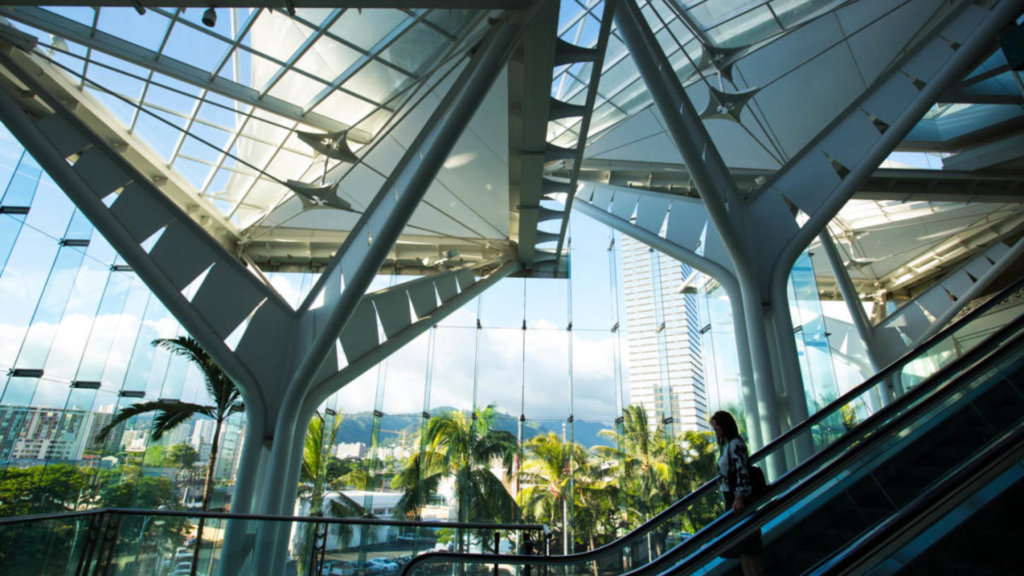
Another innovative approach is to seek out venues that have harnessed the power of biomimicry in event design. Biomimicry involves drawing inspiration from nature’s time-tested patterns and strategies to solve human challenges. For instance, ventilation systems that mimic the way termite mounds maintain a stable internal climate can drastically reduce energy consumption or structures that use natural light and airflow, similar to how plants and animals adapt to their environment, can create comfortable, energy-efficient spaces. Look for event spaces that are LEED-certified or have similar certifications, as they follow strict guidelines for energy efficiency, water conservation, and sustainable site development. Venues that utilize green roofs, solar panels, and natural ventilation systems drastically reduce their carbon footprint and set a benchmark for environmental responsibility.
Take the Vancouver Convention Center – a venue renowned for its sustainability efforts, featuring a six-acre living roof, on-site water treatment, and energy-efficient systems. Hosting an event at such a venue not only reduces environmental impact but also enhances the overall attendee experience with its cutting-edge design.
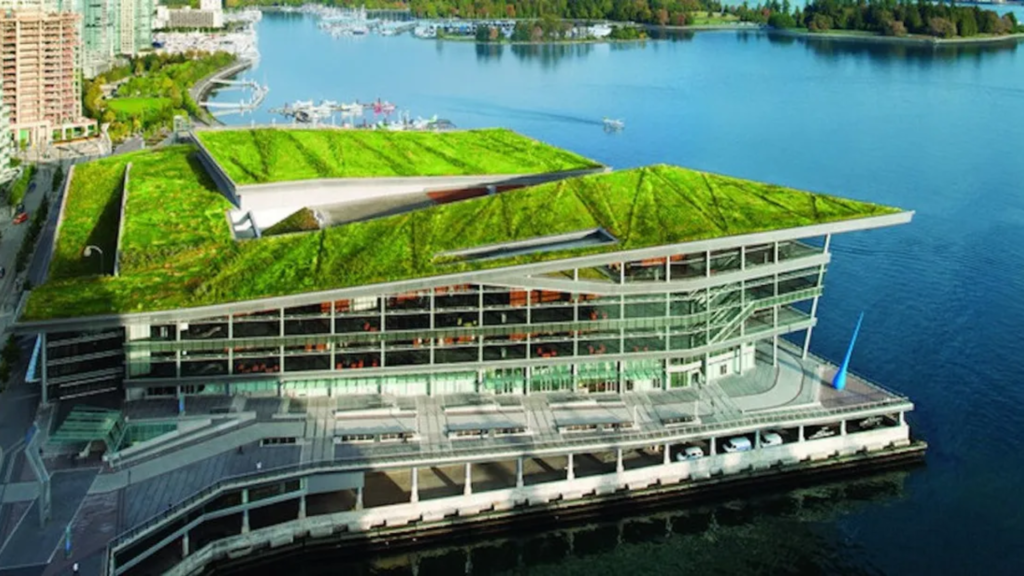
Moving beyond the physical design, we can revolutionize the way we think about event activities and engagement. We know virtual and hybrid events have grown popular post-pandemic, but let’s take it a step further by creating fully immersive, multi-sensory digital experiences that rival in-person interactions. Use virtual reality to transport attendees to remote natural environments, where they can participate in activities like virtual forest bathing or coral reef exploration. Augmented reality can overlay educational content about sustainability directly onto physical objects at the event, blending the virtual and real worlds seamlessly. These technologies not only reduce the need for travel but also offer unique, memorable experiences that are impossible to replicate in traditional formats.
Consider the groundbreaking work of digital artists and technologists at events like Burning Man, where virtual reality environments are used to create shared, immersive experiences that transcend physical limitations. By adopting and adapting these revolutionary technologies, we can offer corporate clients experiences that are both eco-friendly and extraordinarily engaging.
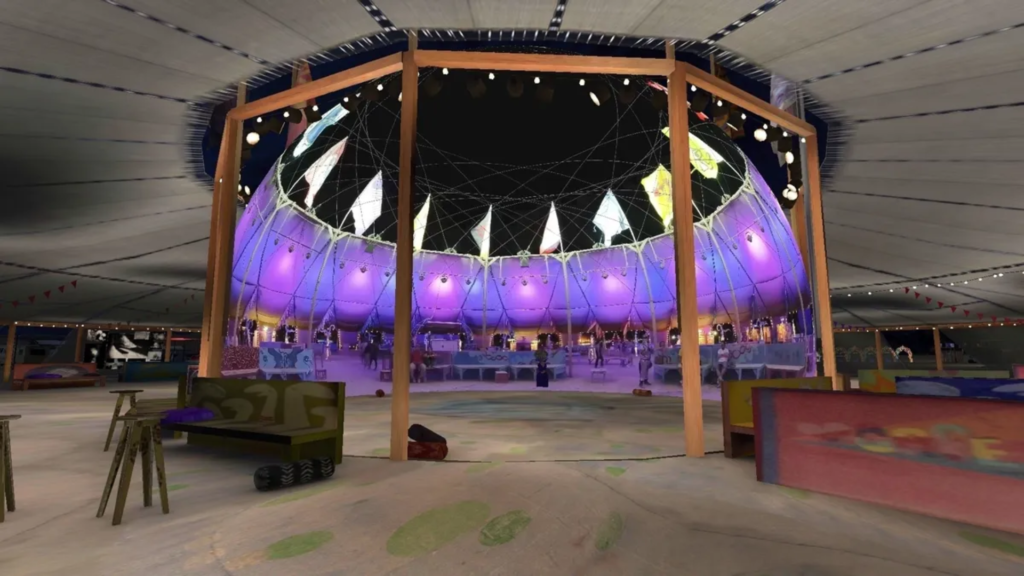
To further cement your position as an industry thought leader, think about creating a closed-loop economy within your event. This involves designing every aspect of the event to ensure that no waste is produced, and all materials are reused or recycled. For example, partner with local farms to source food, and then compost food waste to return nutrients to the soil. Use modular, reusable event materials that can be easily reconfigured for future events, reducing the need for new resources. Implementing blockchain technology to track and verify the sustainability of every element used in the event can also add a layer of transparency and accountability, reinforcing your commitment to eco-friendly practices.
The Ellen MacArthur Foundation is a pioneer in promoting the circular economy, advocating for systemic changes that eliminate waste and promote reuse. By integrating these principles into event planning, we can not only minimize environmental impact but also set a new standard for sustainability in the industry.
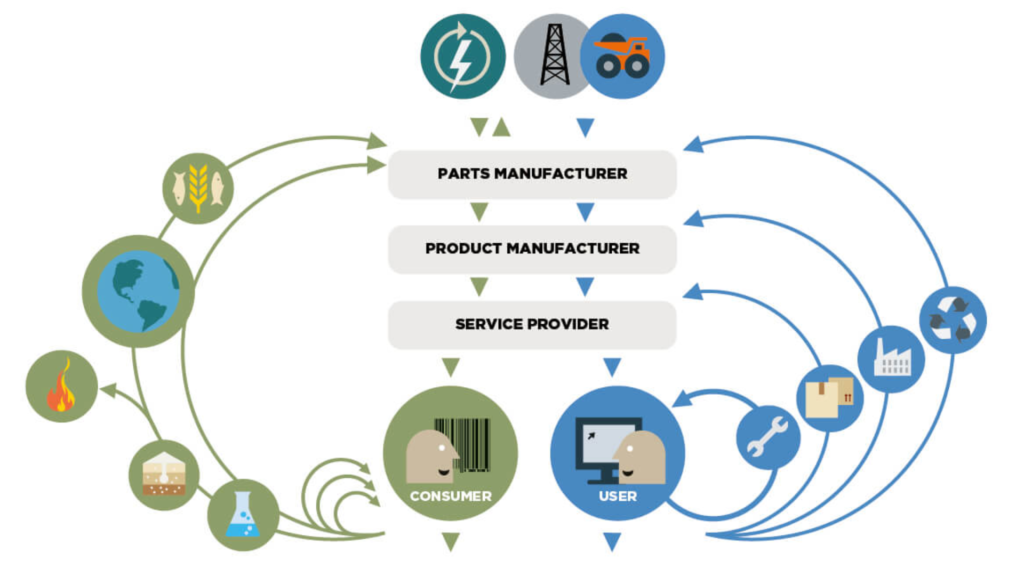
Lastly, engage attendees in a meaningful dialogue about sustainability. Rather than simply telling them about your eco-friendly practices, involve them in the process. Create interactive installations that educate and inspire action, such as a “sustainability challenge” where attendees can compete to reduce their carbon footprint in real-time. Use social media and event apps to encourage ongoing discussions about environmental issues or provide tools and resources for attendees to implement sustainable practices in their own lives. IKEA’s “Sustainable Living” event series features workshops and demonstrations on sustainable living practices, from energy-saving tips to upcycling furniture. By educating attendees, the brand not only promotes its sustainable products but also empowers customers to make greener choices.
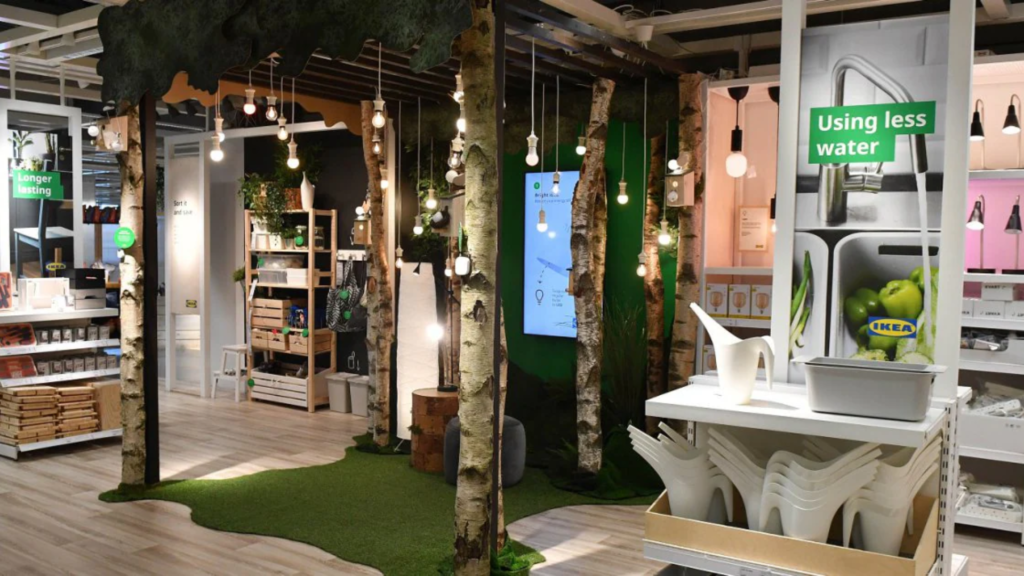
Believe it or not, sustainable practices and unforgettable experiences can go hand in hand. By adopting these innovative, out-of-the-box approaches, you can create events that are both memorable and responsible.
The future of experiential marketing is green, and we’re totally down to help you lead the way.



